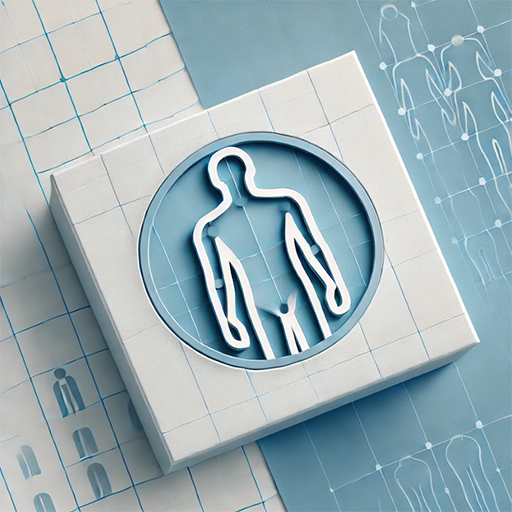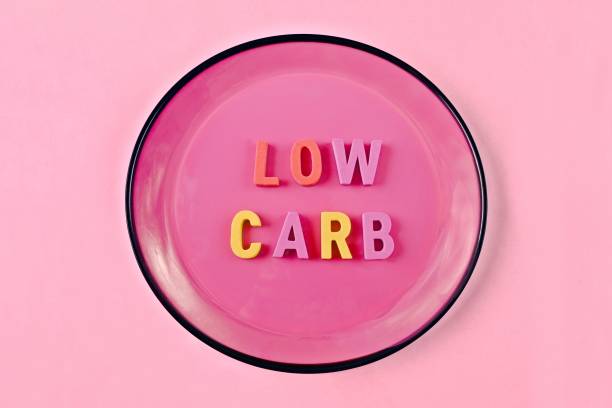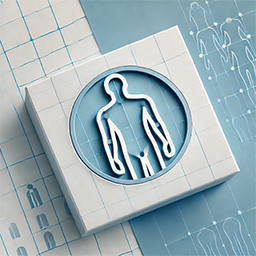Losing weight is something many people want, but figuring out the best way to do it can be hard. Two of the most popular diet plans today are low-carb and low-fat. Both claim to help you drop pounds, but they work in different ways. Some people swear by cutting carbs, while others stick to lowering fat. With so much advice out there, it’s easy to feel confused. So, which one really works best for weight loss?
In this post, we’ll break down the facts about low-carb vs. low-fat diets. We’ll look at what the science says, how each diet affects your body, and what results you can expect. By the end, you’ll have a clearer idea of which one might work best for your body, lifestyle, and weight loss goals.
What Is a Low-Carb Diet?
A low-carb diet cuts back on foods that are high in carbohydrates. These include foods like:
- Bread
- Pasta
- Rice
- Sugary drinks
- Candy
Instead, it puts more focus on eating:
- Lean meats
- Eggs
- Vegetables
- Nuts and seeds
- Healthy fats like olive oil and avocado
The main idea is to lower insulin spikes. This may help your body switch from storing fat to burning it for energy.
Common types of low-carb diets:
- Keto (Ketogenic): A diet that is very low in carbs and high in fat, designed to help your body burn fat for energy.
- Atkins: Begins with a very low-carb phase, then slowly adds carbs back in over time to find your ideal balance.
- Paleo: Focuses on whole, natural foods like meat, fish, fruits, and vegetables. It’s often low in carbs without trying to be.
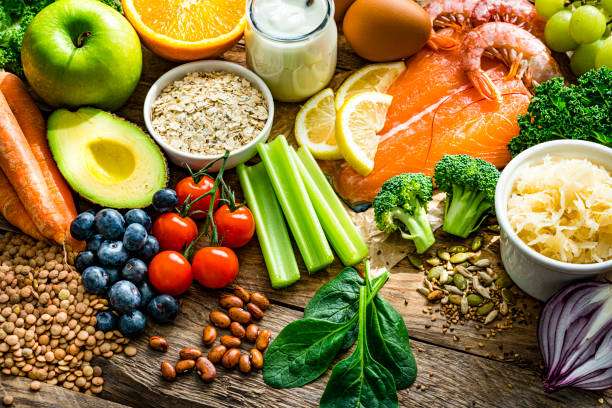
What Is a Low-Fat Diet?
A low-fat diet cuts down on the amount of fat you eat. It focuses on avoiding unhealthy fats, such as:
- Saturated fat (found in red meat and butter)
- Trans fat (found in fried and processed foods)
Instead, the diet encourages you to eat more of the following:
- Whole grains
- Fruits and vegetables
- Lean proteins
- Low-fat dairy
This diet became popular in the 1980s, a time when many experts believed fat was the main reason for weight gain and heart disease.
How Do Low-Carb and Low-Fat Diets Help You Lose Weight?
Weight loss happens when your body burns more calories than you take in. Both low-carb and low-fat diets can help with this, but they use different methods to get results.
Low-Carb Diet and Weight Loss
- Lowers insulin levels, which may help the body burn stored fat and use it for energy.
- May help lower hunger levels, which can make it easier to eat less and lose weight.
- Often causes fast weight loss in the beginning, mostly due to losing water weight from fewer carbs.
A 2022 study published in the New England Journal of Medicine found that people following a low-carb diet lost a bit more weight over 6 months than those on a low-fat diet.
Low-Fat Diet and Weight Loss
- Helps lower calorie intake by reducing or avoiding high-fat foods like fried items and fatty meats.
- May be easier for some people to stick with over time, especially if they enjoy high-carb, low-fat foods.
- Often centers around whole, unprocessed foods like fruits, vegetables, whole grains, and lean proteins.
A review in the American Journal of Clinical Nutrition showed that low-fat diets can lead to long-term weight loss, especially when they include healthy foods like whole grains, fruits, and vegetables.
Which Diet Is Better for You?
The best choice depends on your body, daily habits, and what works best for you. Let’s take a closer look and compare the two side by side.
| Feature | Low-Carb Diet | Low-Fat Diet |
|---|---|---|
| Main focus | Reduce carbs | Reduce fat |
| Quick results | Often faster | Slower but steady |
| Hunger control | Often better due to protein | May feel hungrier at first |
| Food flexibility | More restrictive (at first) | Less restrictive |
| Long-term results | May be hard to stick with | More sustainable for some |
| Health benefits | May improve blood sugar | May lower cholesterol |
What Does Science Say?
Studies Supporting Low-Carb Diets
- A study in the Annals of Internal Medicine found that low-carb diets may help reduce bad cholesterol (LDL) and raise good cholesterol (HDL), which supports better heart health.
- People with type 2 diabetes may benefit from eating fewer carbs. This can help keep blood sugar levels more stable and easier to manage.
Studies Supporting Low-Fat Diets
- The Women’s Health Initiative found that following a low-fat diet helped lower the risk of breast cancer and heart disease over time, especially when combined with healthy food choices.
- A plant-based low-fat diet may help improve digestion and boost your energy levels throughout the day.
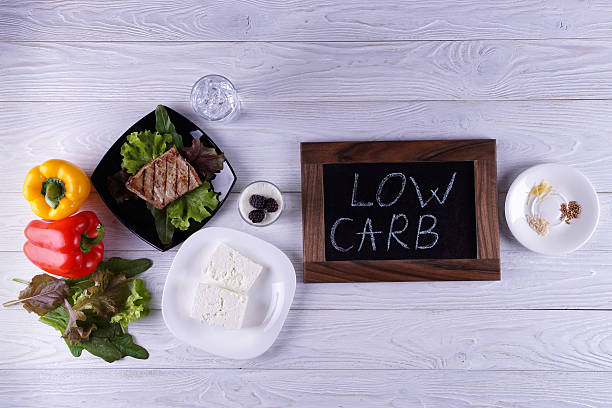
Pros and Cons of Each Diet
Low-Carb Diet Pros
✅ Can help you lose weight quickly, especially in the early stages of the diet.
✅ May help you feel less hungry, making it easier to eat fewer calories.
✅ Helps manage blood sugar levels, which is especially helpful for people with diabetes or insulin resistance.
Low-Carb Diet Cons
❌ May cause tiredness or low energy at first, often called the “keto flu,” as your body adjusts to using fat for fuel.
❌ Can be tough to follow in social settings, like parties or eating out, where food choices are limited.
❌ May be low in fiber and certain vitamins, especially if not planned carefully.
Low-Fat Diet Pros
✅ Often easier to stick with over time, especially if it includes a variety of healthy, familiar foods.
✅ Promotes eating whole foods like fruits, vegetables, grains, and lean proteins for better health.
✅ May help lower cholesterol and blood pressure, which supports heart health over time.
Low-Fat Diet Cons
❌ May not curb hunger as well, which can make it harder to eat fewer calories.
❌ Weight loss results may take longer to show, especially in the beginning.
❌ Some low-fat foods have extra sugar added, which can hurt weight loss and health goals.
Tips for Success on Either Diet
No matter which diet you follow, these simple tips can help you stay on track and reach your goals:
- Plan your meals in advance to stay on track and make healthy choices easier.
- Read food labels carefully to spot hidden sugars, fats, or extra calories that can add up quickly.
- Drink plenty of water to help with digestion, boost metabolism, and keep your body working well.
- Make sure to get enough sleep each night. It helps balance hunger hormones and can support healthy weight loss.
- Be active every day—even a short walk or light stretching can make a big difference.
- Track your progress using photos, body measurements, or a journal to stay motivated and see your results over time.
What About Exercise?
While your diet is important for weight loss, exercise also plays a big part. It helps to:
- Burn extra calories
- Boost mood and reduce stress
- Keep weight off long-term
- Build muscle, which helps burn more fat
You don’t need to join a gym to get active—just start moving your body. You can try:
- Walking 30 minutes a day
- Doing home workouts
- Dancing to your favorite songs
- Trying yoga or bodyweight exercises
Listen to Your Body
Not every diet works the same for everyone. Some people do well with low-carb meals, while others feel their best eating low-fat foods. It all depends on how your body responds.
Ask yourself:
- How do I feel after eating?
- Am I satisfied or always hungry?
- Do I have more or less energy?
- Can I see myself eating this way long-term?
If a diet feels too strict or hard to follow, it might not be the right one for you. The best diet is one you can enjoy and stick with over time.
Should You Talk to a Doctor?
Yes! Before making big changes to the way you eat, it’s a good idea to talk to:
- A doctor
- A registered dietitian
- A nutritionist
They can help guide you based on your health needs, lifestyle, and personal goals.
- Health history
- Weight goals
- Medical conditions
This is especially important if you have health conditions like diabetes or heart disease, or if you’re taking any medication.
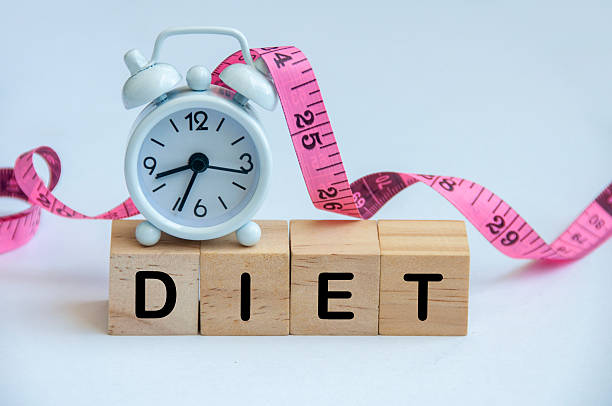
Final Thoughts: Low-Carb vs. Low-Fat—Who Wins?
There’s no one-size-fits-all answer when it comes to losing weight. Both low-carb and low-fat diets can help. What matters most is:
- Taking in fewer calories than your body uses, which leads to weight loss over time.
- Picking whole, healthy foods like fruits, vegetables, lean meats, and whole grains to fuel your body.
- Following a plan that fits your lifestyle, tastes, and goals so you can keep it up long-term.
If you enjoy eating meats, eggs, and vegetables, a low-carb plan might be a good fit for you. But if you prefer fruits, whole grains, and legumes, a low-fat diet could be the better choice.
Try both diets, pay attention to how you feel, and make changes if needed. The best diet is one you can stick with and enjoy for the long run.
Ready to Start Your Journey?
Now that you understand the difference between low-carb and low-fat diets, it’s time to take the next step and choose what works best for you!

